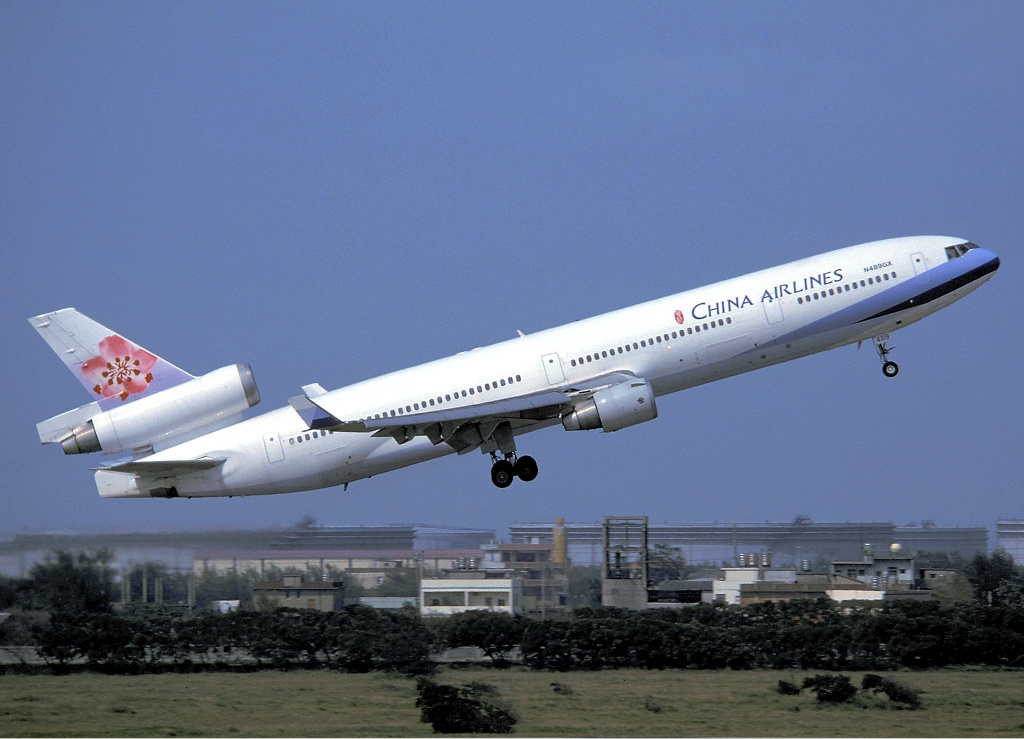by Brian Hioe
語言:
English
Photo Credit: Maarten Visser/WikiCommons/CC
THE CONCRETE EFFECTS of Taiwan’s exclusion from the international community, particularly its exclusion from the International Civil Aviation Organization (ICAO) and World Health Organization (WHO), are visible in the decision by the Italian and Vietnamese governments to suspend flights from Taiwan. Taiwan is excluded from both organizations due to Chinese pressure, seeing as China claims Taiwan to be an inalienable part of China and refuses to allow Taiwan to participate in both organizations on an independent basis. This leads to Taiwan being treated as though it were a part of China, despite Taiwan’s de facto independence.
The decision by both governments was made as a response to the spread of the coronavirus, as a means of limiting the spread of the disease, which is thought to have originated from Wuhan in China’s Hubei province. In general, one notes that responses by western governments to the spread of the coronavirus have been disproportionate, with flights to China suspended until April by some American carriers, Italy, Israel, and Singapore suspending all air traffic from China or closing borders to travelers from China, among others, and the US blocking all foreign travelers who have been to China in the last fourteen days. This occurs despite the fact that this may not limit the spread of the disease and that the disease has not yet proven to have a high mortality rate.
 Airplane from Taiwanese air carrier China Airlines. Photo credit: Sunil Gupta/WikiCommons/CC
Airplane from Taiwanese air carrier China Airlines. Photo credit: Sunil Gupta/WikiCommons/CC
For its part, the Chinese government has lashed out against such measures as discriminatory in nature. Indeed, there is an element of truth to this, though one notes that in response to the H1N1 outbreak in 2009, the Chinese government reacted similarly in canceling flights to Mexico, placed Mexicans in China under quarantine, and refusing to issue visas to Mexicans. One also notes that the decision of various governments to suspend or limit travel from China was probably influenced by the Chinese government’s initial decision to blockade Wuhan—a blockade on a scale possibly never conducted in human history—despite that this might not actually prevent the spread of the disease.
It has been the case, however, that Taiwan was included in Italy and Vietnam’s air traffic bans from China, something which has sparked controversy. Vietnam’s announcement that it would be banning air traffic led to chaos because of flights were in mid-air being rerouted. But the Vietnamese government later allowed flights to and from Taiwan to resume, stating that it had made a mistake.
On the other hand, the Italian government has not yet reversed course on its decision to ban air traffic from Taiwan, though the Italian government has allowed flights to return to Taiwan in order to bring Taiwanese in Italy back to Taiwan. Apart from affected carriers China Airlines and EVA Air urging the Italian government to reverse course on the matter, the Taiwanese government is currently focusing diplomatic efforts on ensuring that other governments do not suspend flights to and from Taiwan.
According to official statements by Vietnamese government officials, the Vietnamese government was following ICAO regulations, which consider Taiwan to be part of China. It is possible that the Italian government was doing the same. As such, this would be a concrete example of the effects of Taiwan’s exclusion from the ICAO and the WHO, the main international organization that sets the rules for global air traffic and the world’s leading global health organization, respectively. The Tsai administration has long sought to point to the dangers of excluding Taiwan from international organizations such as the ICAO and WHO, given the risks to international aviation and global health if a country of Taiwan’s size is excluded from such organizations.
The International Civil Aviation Organization’s suppression of freedom of expression with regard to #Taiwan is unacceptable. We call on @ICAO to immediately and permanently reverse its practice of blocking discussion of Taiwan on its Twitter properties. pic.twitter.com/NsN3fQemcu
— Morgan Ortagus (@statedeptspox) February 1, 2020
The ICAO is currently headed by secretary-general Fang Liu, a Chinese national, which may explain the organization’s hardline stance toward Taiwan. International controversy recently erupted after the ICAO’s Twitter account was found to be blocking critics of its Taiwan policy, or even accounts that simply mentioned Taiwan. After the controversy broke out, the ICAO’s Twitter account later attempted to deny that it had ever been blocking any Twitter accounts. However, by this point, news of the blockings had become so widespread that the US State Department later issued a condemnation of the ICAO’s actions on Twitter.
More broadly, the inclusion of Taiwan in travel bans directed at China points toward how Chinese pressure, not to mention that Taiwan remains officially known as the Republic of China, leads to widespread confusion regarding Taiwan’s geopolitical status—and how this confusion can have real-world effects on Taiwan. This is one way in which Taiwan’s de facto independence but lack of de jure independence still proves dangerous to the island nation, rather simply being a matter of semantics.

